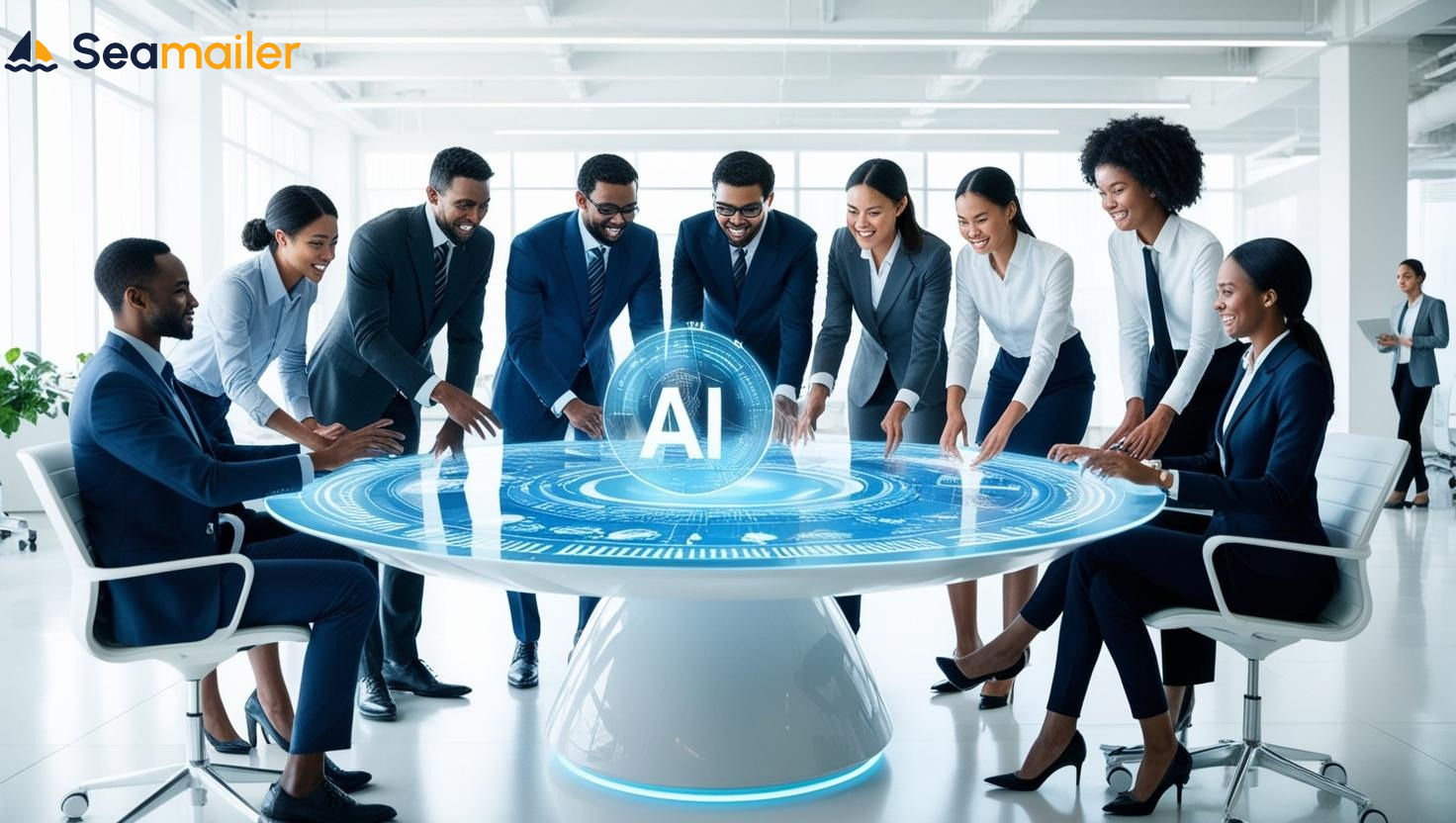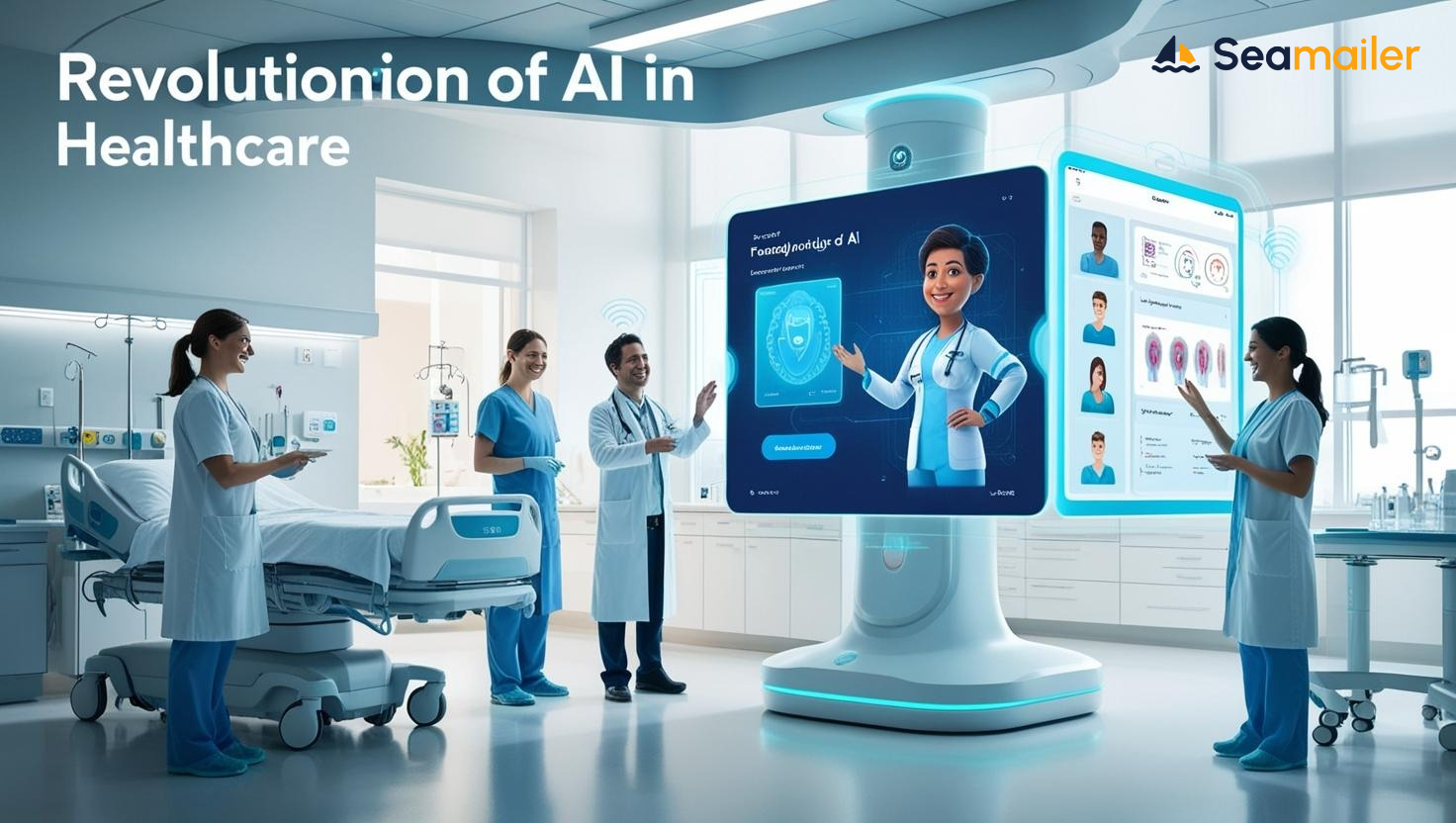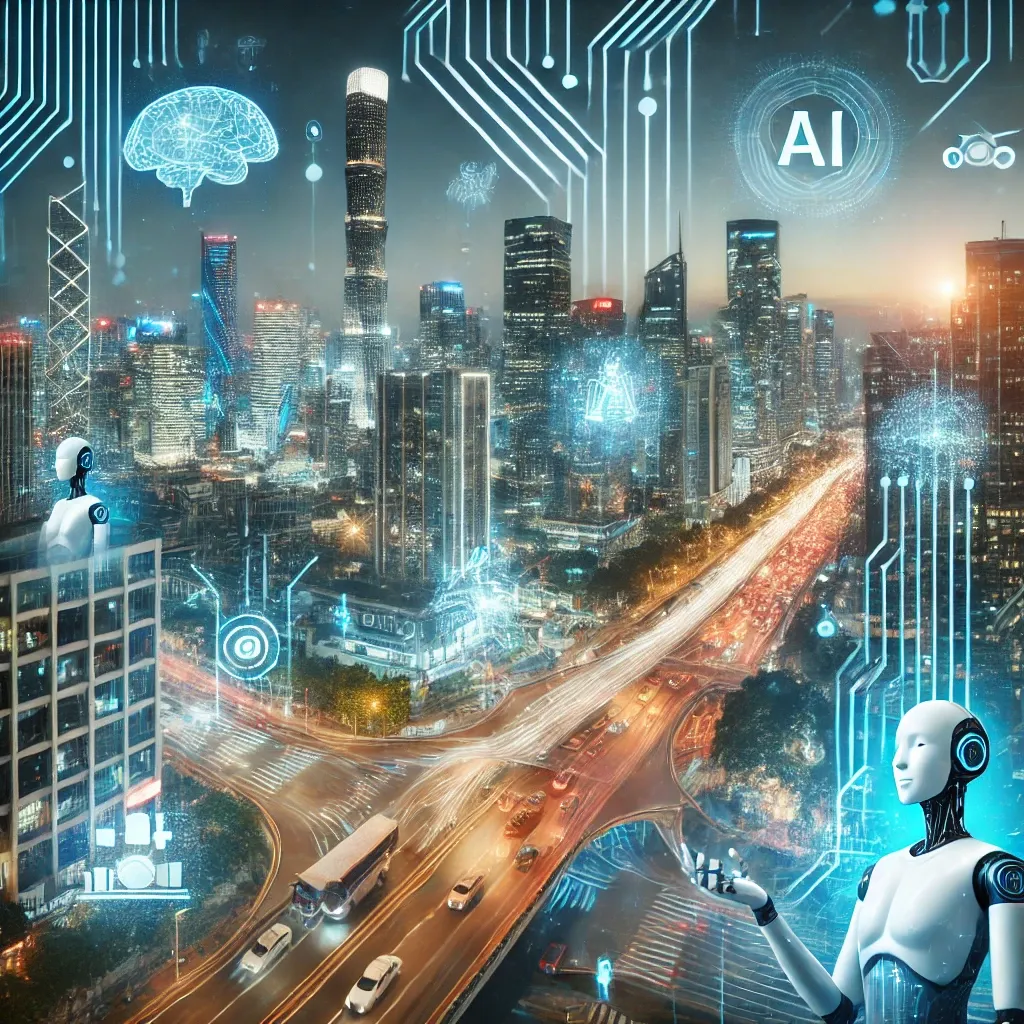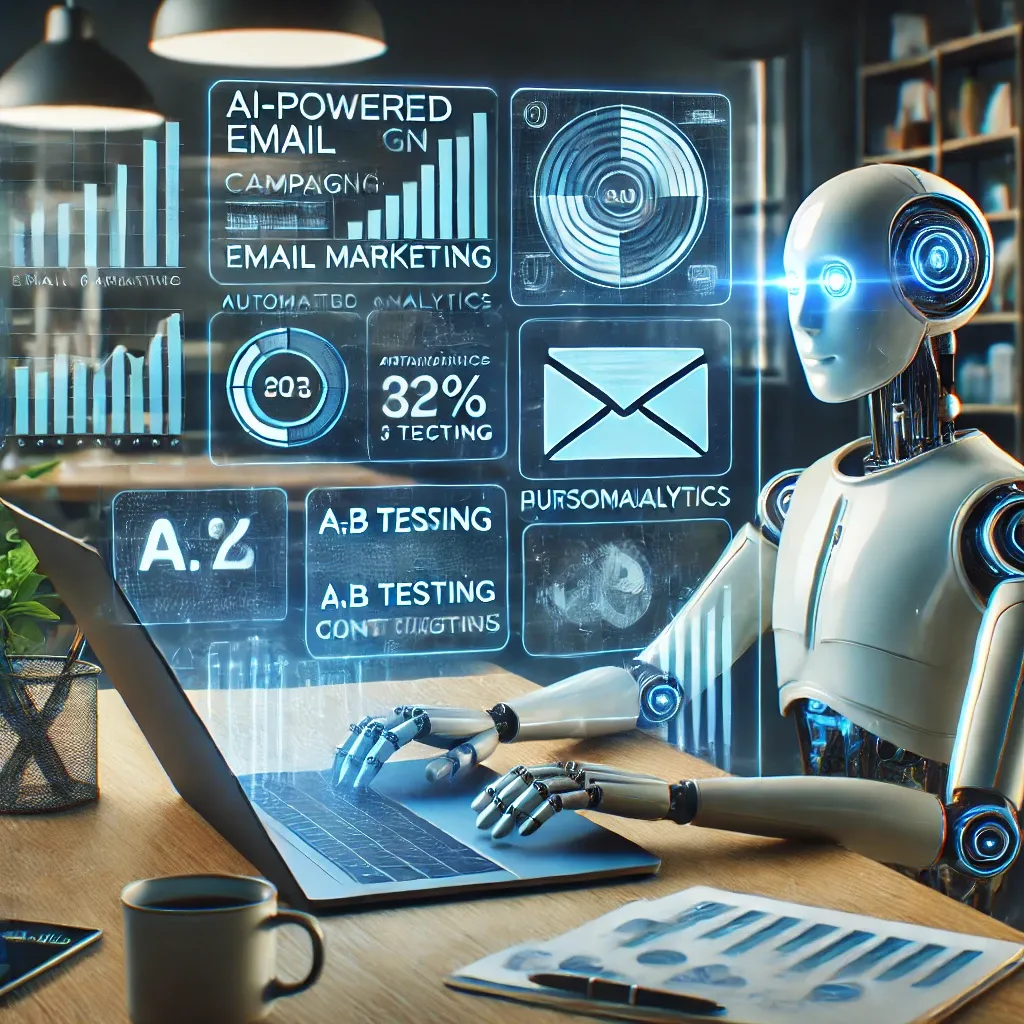The Future of AI in Business

Predictions for the Next 5 Years
Artificial Intelligence (AI) is no longer a futuristic fantasy, it’s here, transforming industries at an unprecedented pace. By 2030, AI is expected to contribute over $15.7 trillion to the global economy, according to PwC. A McKinsey study also found that 50% of businesses have already adopted AI in at least one function.
Consider the case of Tesla, which has revolutionized autonomous driving with AI-powered software, or ChatGPT, which is reshaping customer interactions. These examples showcase how AI is deeply embedded in today’s business world—and it’s only the beginning.
So, what does the next five years hold for AI in business? Let’s explore the key predictions.
1. AI-Powered Automation Will Dominate Workplaces
Increased Adoption of AI Assistants
AI-powered tools such as ChatGPT, Jasper AI, and IBM Watson are redefining how businesses handle customer service, marketing, and even HR processes. By 2028, AI-driven automation is expected to replace or augment 30% of tasks in most organizations, significantly improving efficiency.
Impact on Jobs
A common concern is whether AI will replace human jobs. While automation may displace some roles, it will also create new opportunities. The World Economic Forum predicts that AI will eliminate 85 million jobs by 2025 but simultaneously generate 97 million new roles, particularly in AI development, data science, and machine learning.
AI in Marketing and Sales
AI-driven automation is transforming how businesses market their products. Platforms like HubSpot and Salesforce use AI to predict consumer behavior, personalize content, and optimize ad spend. Businesses leveraging AI in marketing see a 14% improvement in conversion rates, making AI a game-changer for sales teams.
2. Hyperpersonalization and AI-Driven Customer Experience
Predictive Analytics and Customer Insights
AI is enabling businesses to deliver hyperpersonalized experiences. With AI-powered predictive analytics, companies can analyze vast amounts of consumer data to anticipate needs and offer personalized recommendations.
Take Netflix and Amazon, for example—both use AI to analyze user preferences and offer highly tailored content and product recommendations. Expect this level of customization to become the norm across all industries in the next five years.
Conversational AI and Chatbots
Chatbots like ChatGPT, Drift, and Intercom are handling customer queries more efficiently than ever. Gartner predicts that by 2026, 75% of customer interactions will be managed by AI, reducing costs while enhancing user experience.
3. AI-Powered Cybersecurity: The New Frontier
The Rise of AI in Cyber Threat Detection
Cyber threats are evolving, and businesses are turning to AI to strengthen their cybersecurity measures. AI-driven solutions can detect threats 60 times faster than human analysts, according to a study by Capgemini. Companies like Darktrace use AI to identify anomalies in network behavior, preventing cyber attacks in real time.
AI and Fraud Detection
AI’s role in fraud detection is set to grow exponentially. Banks like JPMorgan Chase already use AI to scan transactions for suspicious activity, reducing fraud by 50%. In the next five years, expect AI to be a core component of financial security strategies worldwide.
4. AI in Healthcare: A Revolution in Diagnostics and Treatment
AI-Powered Medical Diagnostics
AI is revolutionizing healthcare, making early disease detection faster and more accurate. Platforms like IBM Watson Health and Google DeepMind analyze medical data to predict diseases with 95% accuracy.

AI-Driven Drug Discovery
Pharmaceutical companies are using AI to accelerate drug discovery, cutting down research time from years to months. AI-driven platforms like Insilico Medicine are developing new treatments at an unprecedented speed, transforming the healthcare industry.
5. Ethical AI and Regulatory Frameworks Will Take Center Stage
The Need for AI Ethics and Transparency
As AI continues to advance, concerns about bias, privacy, and ethical considerations are becoming more pressing. Regulatory bodies are stepping in to ensure AI is used responsibly.
Government Regulations on AI
The European Union AI Act and U.S. AI Bill of Rights are shaping how businesses implement AI. Expect stricter laws on data privacy and AI accountability within the next five years, ensuring that AI remains fair and unbiased.
AI's Direct Effects on Society as a Whole
AI is reshaping society by transforming industries, improving efficiency, and altering the job market. With AI, there has been a rise of automation in manufacturing, customer service, and data analysis which has increased productivity while simultaneously displacing certain jobs, requiring workers to upskill for new roles. This shift is creating both economic opportunities and challenges as businesses and governments adapt to an AI-driven landscape.
Beyond employment, AI is revolutionizing healthcare, education, and public services, leading to improved quality of life. Advanced AI-powered diagnostics enable earlier disease detection, while personalized learning platforms enhance student engagement and performance. Meanwhile, smart city initiatives use AI to optimize traffic, reduce energy consumption, and improve urban living conditions.
However, the widespread adoption of AI raises ethical concerns regarding privacy, bias, and misinformation. AI algorithms can inadvertently reinforce societal biases, affecting hiring practices, law enforcement, and financial decisions. Additionally, the rise of deepfake technology and automated content generation poses risks to information integrity, emphasizing the need for regulatory oversight and responsible AI development.

The Evolution and Disruptions of AI in the Business Environment
AI has rapidly evolved from simple automation tools to advanced machine learning systems that drive business innovation. Companies now leverage AI for predictive analytics, customer personalization, and operational efficiency, disrupting traditional business models and creating new competitive advantages.
Notwithstanding, this disruption also presents challenges, such as workforce displacement and ethical concerns surrounding data privacy and bias. As AI continues to redefine industries, businesses must strike a balance between leveraging its power and ensuring responsible implementation to sustain long-term growth.
Leveraging AI in Email marketing
AI is revolutionizing email marketing by enabling hyperpersonalization and data-driven automation. Your bsiness can now analyze your customer's behavior, predict preferences, and send tailored content that boosts engagement and conversion rates. AI-powered tools like predictive analytics and dynamic content recommendations helps your brands to deliver the right message at the right time, increasing email open rates by up to 50%.
Beyond personalization, AI enhances email marketing efficiency through automated segmentation and A/B testing. Machine learning algorithms analyze audience data to categorize subscribers based on interests, purchase history, and engagement levels, ensuring targeted messaging. Additionally, AI-driven subject line generators and content optimization tools improve email performance by predicting what resonates best with each segment.
AI also plays a crucial role in improving email deliverability and reducing spam rates. Advanced AI filters detect potential spam triggers, optimize send times, and refine sender reputation to ensure emails reach inboxes rather than spam folders. By leveraging AI, businesses can maximize email marketing ROI, streamline campaigns, and build stronger customer relationships through intelligent automation.

Implications of AI and Personal Information for Email Marketing Data Protection
AI-powered email marketing relies heavily on personal data to enhance targeting, but this raises significant privacy concerns. Businesses must ensure compliance with data protection laws like General Data Protection Regulation (GDPR) and California Consumer Privacy Act (CCPA), which regulate how customer data is collected, stored, and used. Failure to implement proper safeguards can result in legal penalties and loss of consumer trust, ultimately damaging a brand’s reputation.
To mitigate risks, companies should leverage AI responsibly by using privacy-first algorithms and anonymized data processing. AI can enhance security by detecting potential breaches, flagging suspicious activity, and ensuring encrypted storage of sensitive information. Additionally, transparency in data collection and providing users with control over their personal information can strengthen compliance and build customer confidence.
Striking a balance between AI-driven personalization and data protection is crucial for long-term success in email marketing. Implementing AI-powered consent management tools allows businesses to respect user preferences while maintaining effective targeting strategies. By prioritizing ethical AI practices, brands can maximize engagement without compromising data security, ensuring sustainable growth in an increasingly regulated digital landscape.
Conclusion: Preparing for an AI-Driven Future
The next five years will witness AI transforming businesses in ways we can only begin to imagine. From automation and personalization to cybersecurity and healthcare, AI is set to redefine how companies operate.
For businesses, the key to success lies in embracing AI strategically—leveraging its power while staying ahead of ethical and regulatory developments. The companies that do so will lead the future of AI-driven innovation.
Want to Stay Ahead of AI Trends?
Follow our blog for the latest insights on AI, business trends, and technological advancements.

